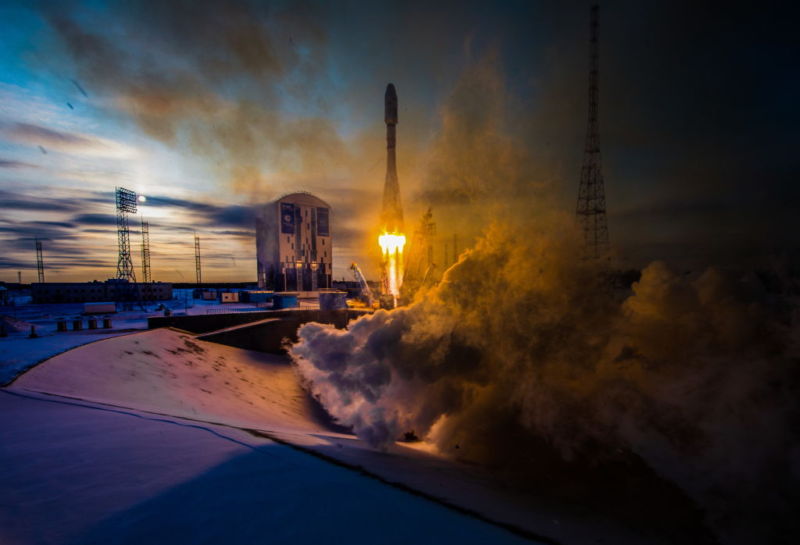
On Tuesday morning, a Russian rocket failed to properly deploy the 19 satellites it was carrying into orbit. Instead of boosting its payload, the Soyuz 2.1b rocket's Fregat upper stage fired in the wrong direction, sending the statellites on a suborbital trajectory instead, burning them up in Earth's atmosphere.
Now, we may know why. According to normally reliable Russian Space Web, a programming error caused the Fregat upper stage, which is the spacecraft on top of the rocket that deploys satellites, to be unable to orient itself. Specifically, the site reports, the Fregat's flight control system did not have the correct settings for a mission launching from the country's new Vostochny cosmodrome. It evidently was still programmed for Baikonur, or one of Russia's other spaceports capable of launching the workhorse Soyuz vehicle.
Essentially, then, after the Fregat vehicle separated from the Soyuz rocket, it was unable to find its correct orientation. Therefore, when the Fregat first fired its engines to boost the satellites into orbit, it was still trying to correct this orientation—and was in fact aimed downward toward Earth. This set the spacecraft on its fatal trajectory into the planet's atmosphere.
State news sources report that the Russian government has established an accident commission to formally look into the causes of Tuesday's failed launch, which will include representatives from Roscosmos and key aerospace industry officials in the country. The commission was to complete its work by the middle of December.
Tuesday's launch attempt was only the second launch from Russia's important new spaceport, the oft-delayed Vostochny Cosmodrome in far eastern Russia. The first launch of a Soyuz 2.1a rocket in April 2016 went off smoothly, but now more than a year and a half has passed since then. This was the first launch of the newer Soyuz 2.1b rocket and the first to use the Fregat upper stage.
reader comments
173